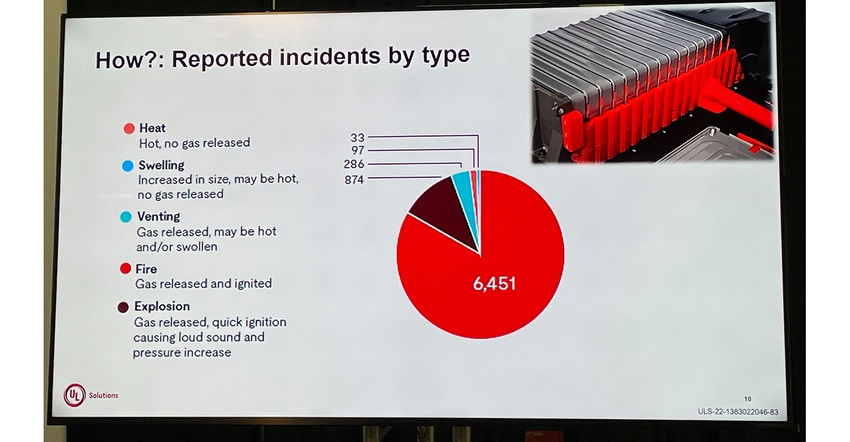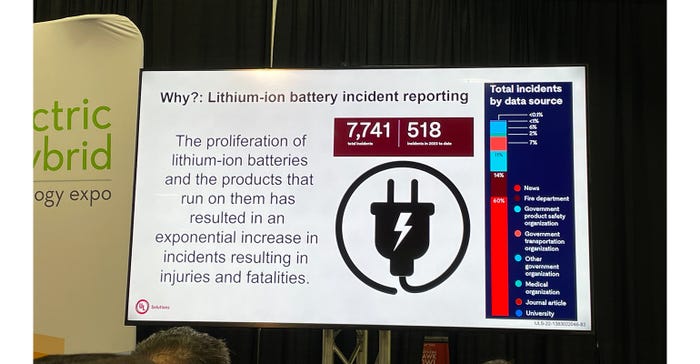Battery Safety: Research and Incident Reporting Matters
Incident reporting is crucial in understanding and mitigating thermal runaway risks. UL’s principal engineer explains why.

Battery safety has emerged as a paramount concern in a world increasingly powered by electricity. With our growing dependence on battery technology to fuel an array of devices, from smartphones to electric vehicles, it's essential not to underestimate the potential risks associated with these power sources. Yet, by harnessing research and incident reporting related to batteries, we can pave the way for safer material technologies, effectively mitigating the risks linked to thermal runaway events.
One organization at the forefront of enhancing battery safety is UL (Underwriters Laboratories), which leverages research and reporting of battery-related incidents to support future material technologies intended to mitigate risks associated with thermal runaway events. Instead of focusing solely on compliance testing, UL actively engages in research and development efforts to enhance battery safety.
The battery safety puzzle
The ascent of lithium-ion batteries has undeniably transformed our daily lives. However, these batteries also have risks, with thermal runaway events being a primary concern that battery manufacturers and researchers keep addressing. Thermal runaway occurs when a battery overheats, potentially leading to an explosion or fire, as we have seen in some high-profile incidents involving electric bikes in NYC and electric trucks.
To address these risks and ensure the continued safe use of batteries, it is imperative to gather and analyze data comprehensively. This data-driven approach helps uncover the root causes of battery failures and develop strategies to prevent them.
Incident reporting is a crucial element for UL
Incident data provides critical insights into the underlying causes of thermal runaway events. By analyzing real-world incidents, researchers can pinpoint the factors contributing to battery failures. This includes issues such as manufacturing defects, electrode contamination, cell design flaws, or improper charging practices. Identifying these root causes is essential for developing targeted solutions to prevent future incidents.
UL's dedication to ensuring battery safety is firmly based on data. UL Principal Engineer Dan O'Shea outlined the company’s approach at The Battery Show North America. UL’s approach revolves around meticulously collecting and analyzing critical data, drawing insights from many sources, including incident reports, laboratory testing, and industry collaborations. This wealth of information provides them with a comprehensive understanding of battery-related risks, enabling them to make informed recommendations and shape the future of safety standards, O’Shea said.

O’Shea emphasized that one of the cornerstones of UL's approach is the emphasis on incident reporting. “Reporting is critical for comprehending the extent and character of this challenge. Many more incidents are happening than are being officially recorded.”
UL encourages manufacturers, consumers, and first responders to report battery-related incidents openly and transparently. This collaborative approach yields valuable real-world data, allowing UL to gain insights into the challenges posed by battery technology in everyday situations. Analyzing these incidents is not merely an exercise in risk assessment; it is a strategic move to develop tailored solutions that effectively mitigate thermal runaway risks.
In a world where innovation often outpaces safety considerations, data-driven research and collaboration with organizations like UL will be instrumental in minimizing the risks associated with thermal runaway events. By embracing data as a powerful tool in enhancing battery safety, we can continue to enjoy the benefits of this transformative technology without compromising our well-being or the environment.
About the Author(s)
You May Also Like





